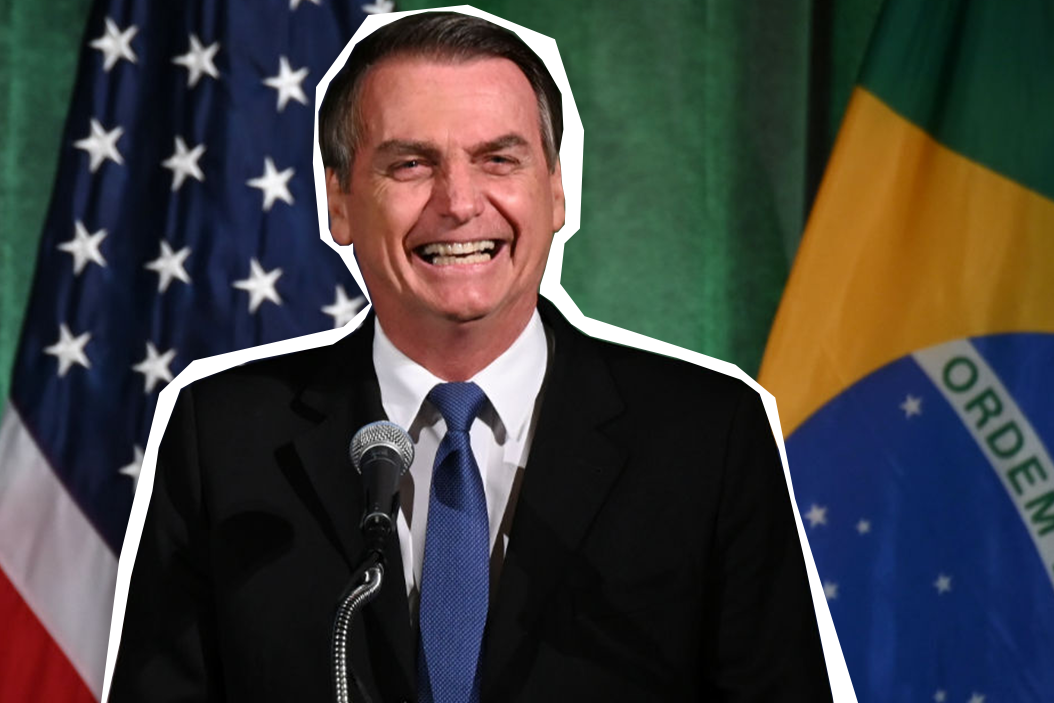News
February 22, 2021
32.9: A new poll shows Brazil's rightwing president Jair Bolsonaro's approval rating has plunged to 32.9 percent, down nearly 10 points since October. In part the dip reflects his recent unpopular decision to appoint a retired general with no energy experience to run the state oil company, sending Brazil's markets into a tailspin. Bolsonaro — up for re-election next year — has been pretty resilient despite leading an incompetent pandemic response. Is his number up?
7: Protests have continued in Madrid and Barcelona for seven straight days over the arrest of pro-independence Catalan rapper Pablo Hasél, accused of insulting the Spanish crown and "glorifying terrorism." Some of the protesters have clashed with police, vandalized banks, and ransacked stores.
3: Militants in the Democratic Republic of Congo killed three people Monday, including Italy's ambassador, in an attack on a UN convoy. UN peacekeeping troops have struggled to keep the peace in eastern DRC, where weak governance has left a power vacuum that's been filled by militias, forcing thousands of Congolese to flee.
17 million: Now that Britain has given vaccines to 17 million people (around 27 percent of the population) Prime Minister Boris Johnson is unveiling a cautious reopening plan. Schools in England will reopen in two weeks time, Johnson announced, while restaurants, bars, shops, and gyms will resume business at the end of March. The PM said the reopening will move slowly because he wants this to be the country's last lockdown.
More For You
41.5%: The proportion of Havana’s garbage trucks that were operational this month, according to state-run media, as Cuba’s fuel crisis prompts a garbage crisis.
Most Popular
- YouTube
Sovereignty has become one of the most powerful, and least defined, words in tech policy. At the 2026 Munich Security Conference, SAP global head of government affairs, Wolfgang Dierker, explains why governments and enterprise customers are demanding more control over their data, cloud infrastructure, and AI systems amid rising geopolitical uncertainty.
- YouTube
On the sidelines of the 2026 Munich Security Conference, Annemarie Hou, Executive Director of the United Nations Office of Partnerships, joined Tony Maciulis to discuss the power of women leaders in global decision-making.
Security in a fragmented world: Cyber deterrence, NATO reform & the future of trusted tech
Feb 14, 2026
- YouTube
In a new Global Stage livestream from the 2026 Munich Security Conference, New York Times White House and national security correspondent David Sanger moderates a conversation with Ian Bremmer (President & Founder, Eurasia Group and GZERO Media), Brad Smith (Vice Chair & President, Microsoft), Benedetta Berti (Secretary General, NATO Parliamentary Assembly), and Wolfgang Dierker (Global Head of Government Affairs, SAP) on how technology and defense are colliding in real time.
© 2025 GZERO Media. All Rights Reserved | A Eurasia Group media company.
